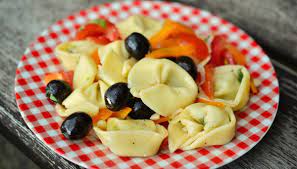What’s The Best Way To Eat For Better, Long-Term Health?

When you think about it, eating is one of the most important things we do. Not only does it provide us with sustenance and energy, but it also plays a role in our overall health. Unfortunately, many people don’t take their diet seriously enough, which can have negative consequences down the line. In this article, we’re going to discuss some of the best ways to eat for better health over the long term.
What is the Mediterranean Diet?
The Mediterranean diet is a dietary pattern that is traditionally associated with the countries in the Mediterranean region, including Greece, Italy, Spain, and Libya. The Mediterranean diet is characterized by its high intake of fruits and vegetables, nuts, legumes, whole grains, low levels of saturated fat and cholesterol, and moderate amounts of fish and seafood. The benefits of the Mediterranean diet for human health are largely attributed to its high consumption of antioxidants and polyunsaturated fatty acids.
The key components of the Mediterranean diet are considered to be its strong emphasis on plant-based foods and its moderate consumption of animal-based foods. The traditional Mediterranean diet includes a high intake of fruits and vegetables, nuts, legumes, whole grains, low levels of saturated fat and cholesterol, as well as moderate amounts of fish and seafood. A number of studies have found that people who follow a Mediterranean diet are less likely to develop chronic diseases such as heart disease, stroke, cancer, obesity or type II diabetes. In addition to their health benefits, following a Mediterranean diet has also been shown to reduce your environmental impact.
The Benefits of the Mediterranean Diet
The Mediterranean diet is one of the most popular and healthy diets around. It emphasizes plant-based foods, moderate physical activity, and good eating habits. There are many benefits to following a Mediterranean diet, including:
A decreased risk of heart disease. The Mediterranean diet is linked with a decreased risk of heart disease, partly because it includes more fruits, vegetables, nuts, and whole grains than other diets.
A decreased risk of type 2 diabetes. The Mediterranean diet is also linked with a decreased risk of type 2 diabetes, partly because it includes more monounsaturated fats and less sugar than other diets.
Better cognitive function. A study published in the journal Neurology found that people who followed a Mediterranean diet had better cognitive function than those who followed a traditional American diet or a low-fat diet. The researchers think that the beneficial effects of the Mediterranean diet on brain health may be due to its high levels of antioxidants and fiber.
Increased lifespan. A study published in the journal Lancet found that people who followed a Mediterranean diet had a increased lifespan compared to those who followed a traditional American diet or a low-fat diet. The researchers think that the protective effects of theMediterranean diet on health may be due to its high levels of antioxidants and fiber.
A decreased risk of chronic diseases. The Mediterranean diet is also linked with a decreased risk of chronic diseases, including heart disease, type 2 diabetes, and cancer.
A decreased risk of weight gain. The Mediterranean diet is associated with a decreased risk of weight gain, partly because it includes more fruits, vegetables, nuts, and whole grains than other diets.
Improved gut health. The Mediterranean diet is linked with improved gut health, partly because it includes more fiber and antioxidants than other diets.
What Should You Eat on a Mediterranean Diet?
A Mediterranean diet is a great way to eat for better, long-term health. The foods in this diet are high in fiber, low in sugar and saturated fat, and have plenty of antioxidants. They are also low in calories, which can help you lose weight and keep it off. Here are some tips for eating on a Mediterranean diet:
• Eat plenty of fruits and vegetables. These foods are high in fiber and antioxidants, and contain few calories.
• Choose healthy proteins. Lean meats and fish are a good source of protein on a Mediterranean diet. Avoid processed meats, which are high in saturated fat and sodium.
• Enjoy whole grains. Whole grains are a good source of fiber, vitamins, minerals, and antioxidants. They also contain minimal sugar and calories.
• Use herbs and spices sparingly. Herbs and spices contain chemicals that can be harmful to your health if you overuse them. Instead, sprinkle them on top of your food or use them as condiments instead of using them as the main component of your dish.
How to Follow a Mediterranean Diet
A Mediterranean diet is a type of diet that is high in fruits, vegetables, and whole grains, low in saturated fats and cholesterol, and moderate in protein. The benefits of following a Mediterranean diet include a reduced risk of heart disease, stroke, and some types of cancer. Here are five tips for following a Mediterranean diet:
Choose fresh rather than processed foods. Foods that are high in processed foods are often full of sugar and unhealthy fats. Instead, make sure to eat plenty of fresh fruits and vegetables.
Eat a variety of foods. A Mediterranean diet includes a variety of different foods, so it’s important to get your nutrients from all sources. Make sure to include items like whole grains, legumes, nuts, and seeds in your meals.
Follow the daily recommendations for healthy fats. A Mediterranean diet is high in healthy fats, including omega-3 fatty acids. Make sure to follow the daily recommendations for healthy fats to ensure you’re getting the right amount.
Drink plenty of water. A good way to stay hydrated while following a Mediterranean diet is to drink plenty of water throughout the day.
Enjoy your food. Too often we focuson what we can’t have, instead of enjoying the foods we do have. A Mediterranean diet is full of delicious foods, so don’t be afraid to indulge in occasional treats.
Conclusion
There is no one-size-fits-all answer to this question, as the best way to eat for better, long-term health depends on your own individual needs and preferences. However, by understanding how food impacts your body and what foods are best suited to promoting health and longevity, you can begin making tweaks to your diet that will help you achieve your goals. So whether you’re looking to lose weight or improve overall health, start by figuring out which dietary approach works best for you and stick with it!





